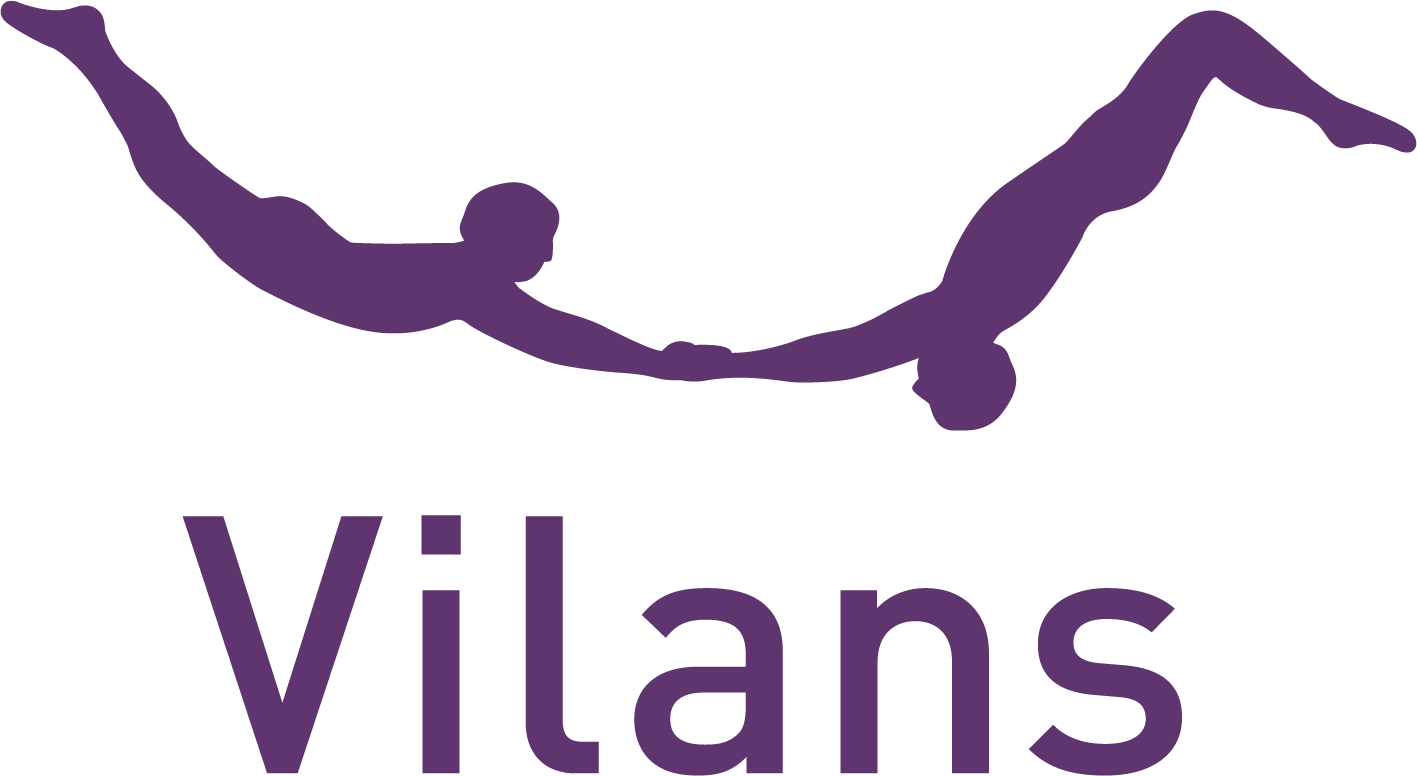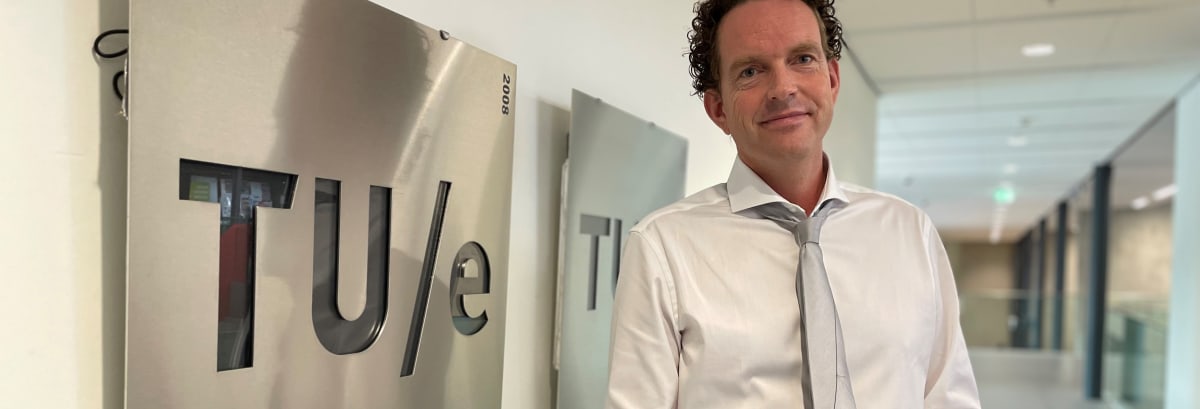Professorship strengthens collaboration between Vilans and Eindhoven University of Technology
Published on: 12-09-2024
Henk Herman Nap, Digital Care Expert at Vilans, has been appointed Professor of Value-Based Digital Care Innovations at Eindhoven University of Technology (TU/e). The appointment, which begins 1 September is a part-time professorship and provides an extra boost to the valuable cooperation between the two organisations that has existed for many years.
The fact that this professorship is focused on value-driven digital care, clearly fits with the challenges currently facing healthcare. Nap says, “The demand for care is growing and becoming more complex, while staff shortages are increasing. Digitisation can play an important role in finding solutions to this, provided it is applied properly. This is why my professorship has three focus areas: co-design, value engineering and responsible innovation.”
Co-design
Co-design is about developing digital care that meets the needs of older people and has value. This means involving the target group in the development of digital applications. Nap adds, “Sometimes new methods are needed to make this possible. For example, Sandra Suijkerbuijk's PhD research at Eindhoven University of Technology makes this clear by focusing on the question: How to Involve People with Early Dementia in the Development of DigitalAapplications. This is something that still happens far too little.”
Valuation
Value assessment asks the question: How do you properly and uniformly map the value of digital development? Nap: “Research groups usually have their own different methods for valuation. Funders and end users, on the other hand, need uniform metrics for this.”
Responsible innovation
Responsible innovation involves reflection on ethical values such as diversity and privacy. This involves finding the right balance between the individual user and scaling up. However, Nap cautions, “To accelerate care innovation, you cannot take into account the wishes of every individual user.”
Research questions
The focus areas lead to several research questions. Nap explains, “The first is which values play a role in the acceptance of digital care and how these in turn are influenced by use. For example, how do you include the privacy aspect in the development of a social robot? Can the user influence the data the robot collects and can he also turn it off? But besides privacy, inclusivity, for example, is also important. Data should not favour or disadvantage user groups.”
A second research question is: What variables increase the value of digital care? “Many of today's digital innovations have added value,” says Nap. “They save time or give the client more control, but the impact is often still limited. If older people increasingly continue to live at home, how do we give them the complex care they would otherwise receive in the nursing home? You cannot put a hoist in every home. Interviews and observations required to answer this research question are intensive so we would also want to see if we can use even more real world data. For example, from existing technology in people's homes or data already available in ECDs (digital cliënt files).”
A third research question is: How do you add value to the client's life and the employee's work? “How do you make sure an innovation lands,” says Nap. “For that, we pay a lot of attention to accepted evidence because while an innovation can have great impact, people also have to accept it and implement it.”
Expanding cooperation Vilans and TU/e
Nap's professorship fits well with the existing cooperation between Vilans and TU/e. He says, “I, myself did my PhD at the university in 2008 on the topic: Stress in Seniors when Using Computers, and how to Reduce it. I also did research there as a postdoc on gaming for seniors and gaming for health. Furthermore, I am on the board of the International Society of Gerontechnology, which originated at TU/e in 1988 and focuses on technological developments for the ageing society.”
“We are extremely happy with the arrival of Henk Herman as part-time professor on this important topic,” says Wijnand IJsselsteijn, Professor of Human-Technology Interaction at TU/e, and founder and co-director of the ECDT (Expertise Center Dementia & Technology). “He brings a wealth of knowledge around valuation and successful implementation of healthcare innovations in practice. This is a wonderful next step in our close collaboration.”
Additional impulse
“The collaboration between Vilans and TU/e gets an extra impulse with Nap's appointment,” says Mirella Minkman, Vilans Board Chair. “As Vilans, we think building bridges between science and practice is very important. Henk Herman knows both worlds and can therefore connect scientific and practical knowledge and generate a broad reach. His professorship confirms his extensive track record and the international reputation he has built on the subject of digital care, which again, brings new opportunities.”
Minkman continues, “Value-driven digital care is a focal point for Vilans and will certainly remain so in the coming years, given the big tasks ahead. We were already working very well with TU/e but projects have a temporary nature, while innovation and application of knowledge about value-driven digital care requires long timelines, building on knowledge and working in meaningful relationships. That is where this cooperation agreement and Henk Herman as scientific 'liaison officer' fits in. In addition, it provides many opportunities to use each other's complementary networks and expertise so that we can make a bigger impact socially.”
Connecting to practice
This is exactly what Nap also aims to do. Vilans and TU/e both focus on how technology can better connect with users,” he says. “We always have PhD students on this theme. Now, for example, Janna Alberts on the topic of nutrition - digital support to ensure that older people continue to eat and drink well. The beauty of all these connections is that we, at Vilans, can ensure that all the knowledge and technologies developed at the university are applied in practice in elder care. An important consideration is that Vilans often visits care organisations to get an idea of the challenges they face. We then present these challenges to developers and university students. We do this not only with TU/e, but also with other universities, such as Utrecht University in the PhD work of Dirk Lukkien, in which we look at the ethical aspects of responsible innovation with technology.”
Promoting upscaling
For Nap personally, the professorship is a nice follow-up to a question that has occupied his mind for at least fifteen years. “I have always found it remarkable that there are a lot of great innovations, but many of them don’t come to scale,” he says. “I kept running into that, and this makes it clear to me that we need to look much more at the accepted evidence I've been talking about. I also think inclusiveness is important, and that's another aspect that I'm going to further shape in this professorship.
So my hope is that in the coming years - in collaboration between Vilans and TU/e - we can get closer to the value that technology in care brings to the different target groups. We want to achieve more uniformity and ensure that developments really do land, that we include ethical values in the process. I look forward to taking valuable steps towards this, together with partners in science and practice.”
Dementia & Technology Expertise Center (ECDT)
Nap's professorship is closely linked to the Dementia & Technology Expertise Center (ECDT), a collaboration between TU/e and Alzheimer Nederland. The ECDT brings together multiple disciplines, particularly psychology, design, HCI and AI. In collaboration with the target group, the ECDT studies and develops technological innovations (warm technology) that improve the quality of life of people with dementia and their loved ones, and optimize working conditions for care workers.







